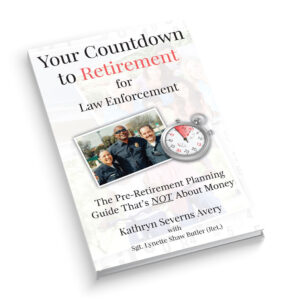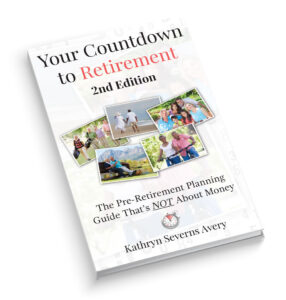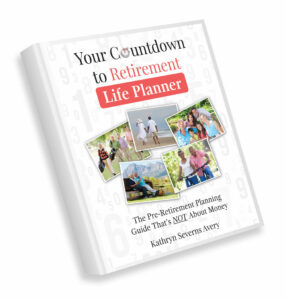It's Not Just About the Money!
Making a Difference Wherever You Can
-
Author : Your Countdown to Retirement
Date : May 23, 2019
Category : Health and Wellness, Relationships, Retirement Planning
Comments : 0
Like : 0

By Kathryn Severns Avery
When faced with making choices in a situation that is unexpected and/or overwhelming, we may throw up our hands and ask “What difference does it make what I do?” or “What choice do I have in this situation?” We may believe our efforts will be ineffective at best and futile at worst. But what we do does make a difference and the choices we make affect both us and others.
Not too long ago, my 93-year-old father ended up in the hospital. He had recently come to live with me and my husband after my Mom died. A trip to the local ER ended with him being admitted to a hospital 70 miles from our summer home in Rockland, Maine in the middle of the night. For three days my life was totally centered on overseeing his care and getting him back home as quickly as possible.
In this situation, where important medical decisions are being made, a delicate dance between medical professionals doing their jobs and those, like me, advocating on behalf of the patient unfolded. While there were many things I could not do for my father in this situation, I chose to focus on what I could do to make him feel safe. After all, he had come to live with us less than two weeks before. Being in a strange environment with a potentially serious medical condition was frightening to us both. The decision at 2 a.m. at our local hospital to transport him by ambulance to another hospital did little to reassure him that all would be well.
Rather than feel helpless and overwhelmed, I sprang into action. I explained to my father what was happening and the sequence of events that was about to unfold. I made sure he understood what I told him. Most importantly, I took his hands in mine, looked into his eyes, and gave him my word that I would be no more than 20 minutes behind the ambulance transporting him. I explained I needed to go home and quickly gather together items both he and I would need in the hospital over the next couple of days.
During the next few days, I focused on small actions to make him feel cared for like rubbing his back, or holding his hand. Communicating regularly to him what was happening and why calmed his concerns. Admitting when I didn’t know something and finding the answer empowered us both.
Fortunately, the medical staff at the medical center was first rate. They explained procedures and gave him a timeline of what was going to happen and when. I chose to focus on the positives in the situation. Being grateful for attentive and caring staff and having access to medical care made me realize how fortunate we were in this situation and the many mercies we experienced.
In the future, I hope I continue to be aware of the choices that I have in every situation. I know no matter how seemingly insignificant my actions, what I do always matters.
If you are ready to start making empowered decisions about your own retirement plans, visit our What’s Next for Boomers? Life Planning Center. We look forward to working with you.





